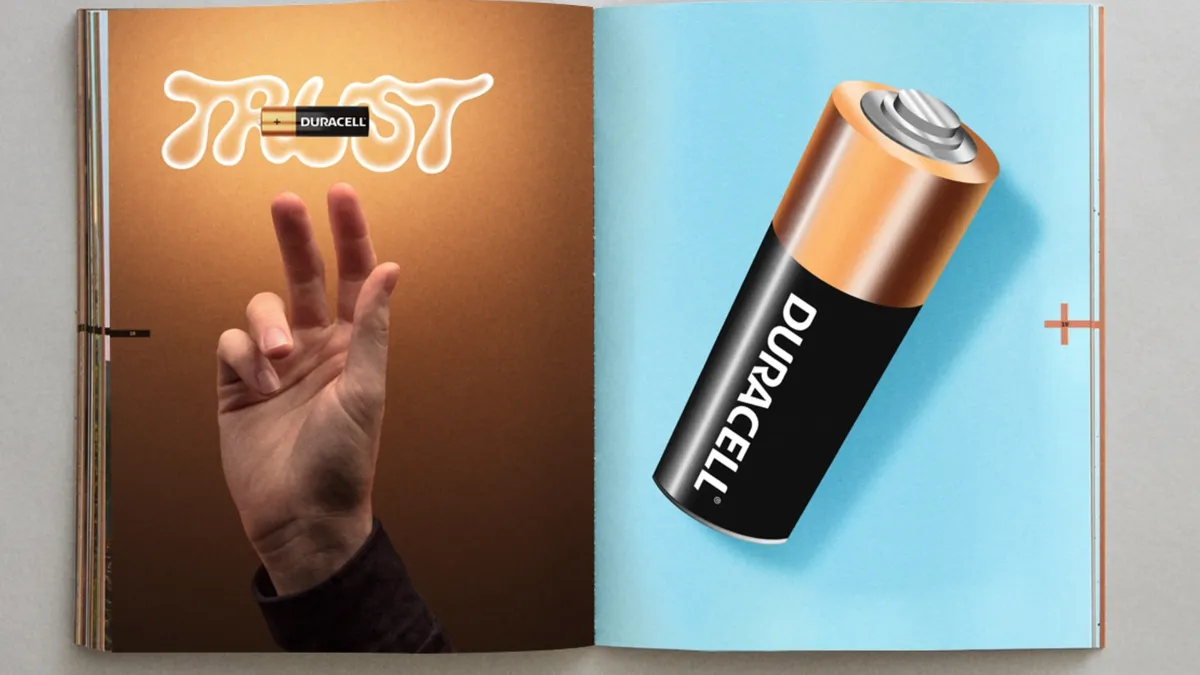Dive Brief:
- Duracell is launching a new brand platform called "Trust is Power" designed by Wieden+Kennedy New York, as announced in a company press release.
- The campaign will feature spots emphasizing how consumers can trust Duracell in everyday activities like child care, household safety, gaming and grooming and will also include the brand’s first-ever Duracell Catalog to be distributed via Instagram, with printed versions sent to influencers and battery enthusiasts.
- The "trust" theme of the campaign stems from a perception that trust is short supply right now, according to Ramon Velutini, VP of marketing at Duracell, who said in the press release that the effort leverages Duracell’s reputation as "the most trusted name in batteries."
Dive Insight:
Basing the core concept of a campaign around trust might signal Duracell is playing into a widespread disenfranchisement and distrust felt among U.S. consumers, particularly with the political process but also with marketers as many have grown cynical toward traditional brand messaging.
However, the new campaign isn't particularly gloomy or solemn, which might be crucial to its success given those cynical attitudes. Velutini said in the release that Duracell will address the "real issue of trust" in a lighthearted way, with ad spots including "Ear Hair Man," showing how Duracell batteries can be trusted with personal grooming issues.
The Instagram catalog is also a novel way of showcasing the campaign and might help the battery brand connect with more influencers. Many consumers — and especially young consumers — have been shown to trust influencer promotions over straightforward, studio-quality advertisements, as they can feel like genuine product recommendations as opposed to a business pedaling a product.
Focusing on trust might also be a bit of meta-commentary on Duracell's part given the recent erosion of many relationships between brands and their agencies over a lack of transparency. "Transparency" was named the ANA's marketing word of the year in 2016. ANA's released a transparency report last summer that found agencies had received rebates marketers were not privy to, which lead to many marketers auditing their ad buyers.









